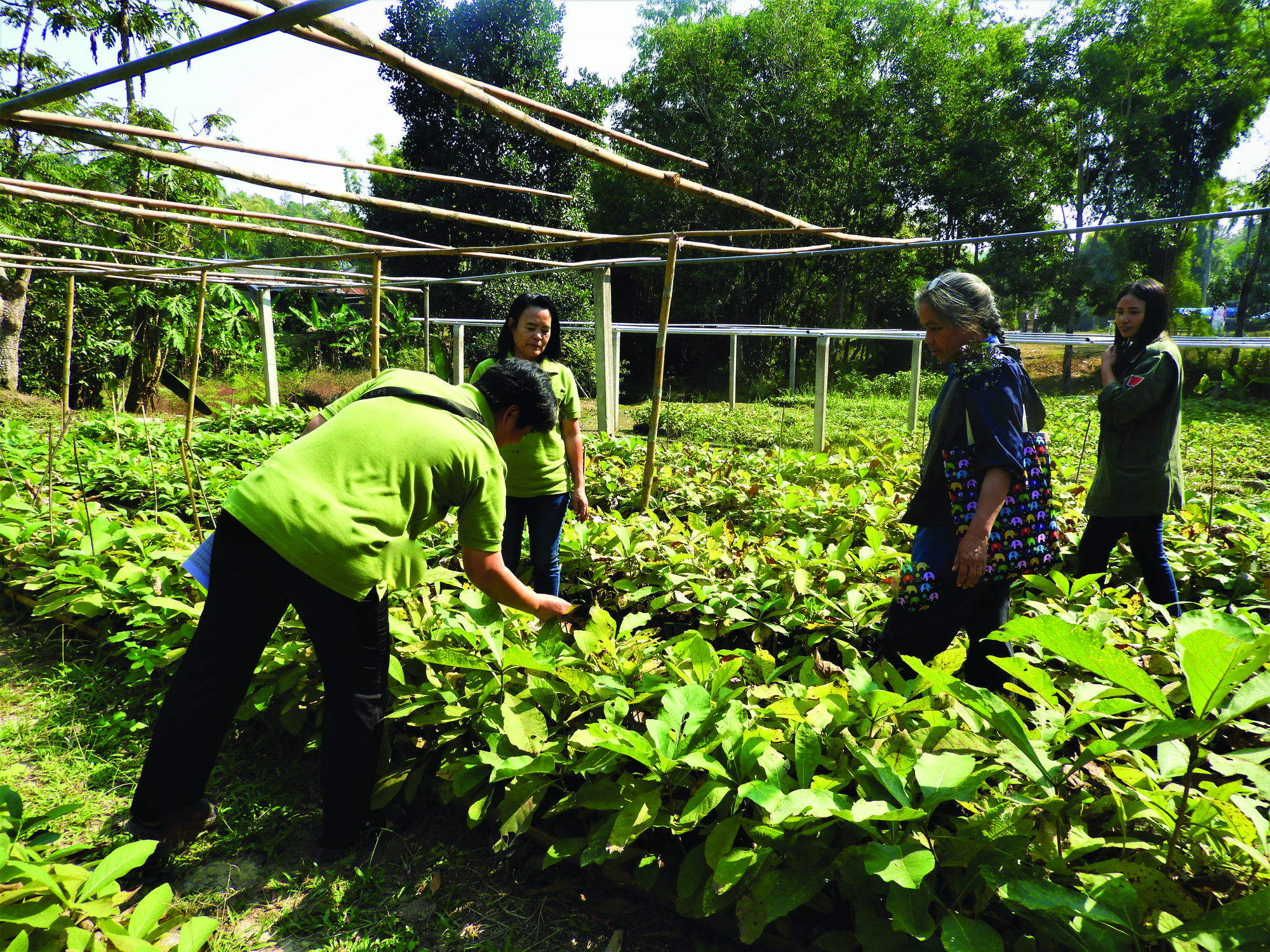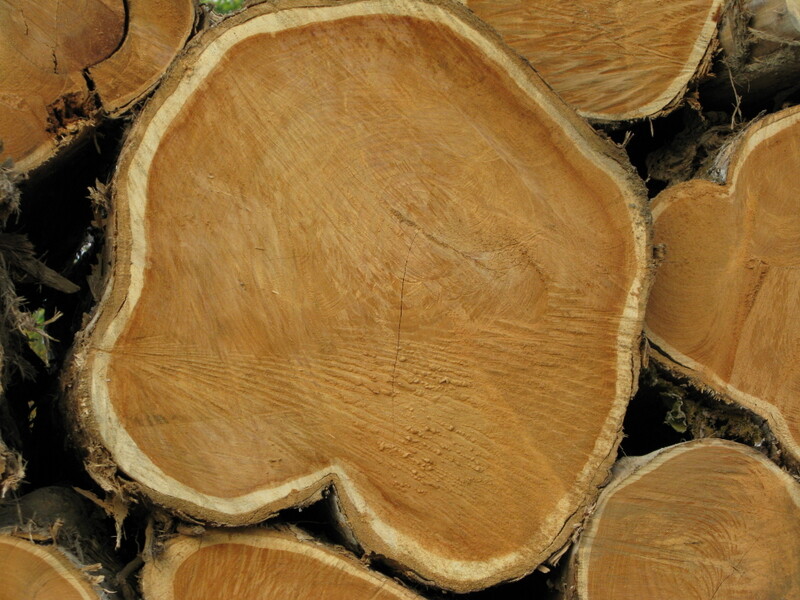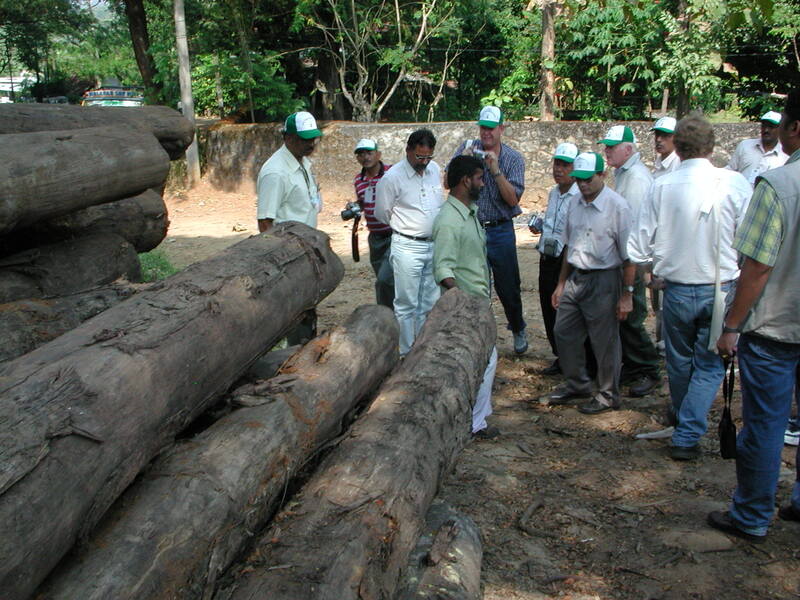High-quality seeds yield high-value timber: ITTO-BMEL hosts second teak webinar
25 April 2025, Yokohama

Teak seedlings for clonal test at Maegar Silvicultural Research Station in Thailand. Photo: ITTO
The International Tropical Timber Organization (ITTO), in partnership with Germany’s Federal Ministry of Food and Agriculture (BMEL), hosted the second regional webinar under the ongoing ITTO-BMEL project titled “Promoting Quality Timber Production in Smallholders and Community-based Teak and Other Valuable Species Plantations in the Tropics.” Held on April 22, 2025, the event brought together forestry experts, researchers, and policymakers to explore the critical role of high-quality planting materials in premium teak production.
The webinar highlighted the foundational importance of high-quality planting stock in developing productive teak plantations that can generate high-value timber. Experts emphasized that the genetic potential of planting materials directly influences tree growth, heartwood quality, and overall plantation resilience. The session also underscored the growing significance of tree breeding and genomics in accelerating genetic gains and improving timber characteristics to meet the rising demand for certified and legally harvested tropical wood.
Opening the session, Ms Jennifer Conje, Director of ITTO’s Forest Management, reiterated that quality planting materials form the starting point of a sustainable and productive teak supply chain. She pointed out that without genetically superior seedlings, achieving robust growth, heartwood formation, and resilience in the face of climate change remains elusive. “Without quality seeds or seedlings, and ensuring survival, quality growth and resiliency during the teak tree’s formative stages, one cannot progress to the next step in the supply chain”, said Ms Conje.
Ms Conje further emphasized that smallholder teak farmers, who often rely on plantations as a “living savings bank,” need better access to improved planting stock to support both their livelihoods and long-term sustainability.

The webinar featured two keynote presentations. Dr Yasodha Ramasamy of the Institute of Forest Genetics and Tree Breeding (IFGTB) in India provided insights into advances in teak genomics. She described how whole genome sequencing and the development of DNA markers have enabled researchers to reduce breeding cycles, enhance heartwood quality, and improve the predictability of timber traits through genomic selection. Drawing from decades of provenance trials, Dr Ramasamy illustrated how regional differences in teak growth performance can be used to guide breeding strategies.
The second presentation, delivered by Dr Suwan Tangmitcharoen of Thailand’s Royal Forest Department (RFD), provided a comprehensive overview of teak conservation and breeding efforts in the Greater Mekong Subregion. Dr Tangmitcharoen highlighted Thailand’s pioneering initiatives in genetic conservation, including the establishment of the Hauy Tak Teak Biosphere Reserve. He traced the evolution of teak improvement in Thailand across three phases: from species introduction to clonal selection and biotechnology integration. New research, he noted, reveals that while some heartwood traits are challenging to select due to low heritability, other traits, such as height and sapwood depth, offer strong genetic signals for selection. His presentation emphasized the potential of genomic tools to enhance teak productivity and called for greater regional cooperation in sharing germplasm and marketing innovations to ensure that smallholders benefit from genetic improvements.

Participants raised questions about the risks of narrowing genetic diversity through genomic selection, strategies for enhancing heartwood development, the optimal number of clones for plantation resilience, and smallholder access to elite planting materials. Dr Ramasamy stressed that genomic tools should be applied alongside strategies that maintain broad genetic diversity to prevent increased vulnerability, recommending the use of 20 to 30 clones to ensure both productivity and resilience. Dr Tangmitcharoen emphasized the importance of longer rotations and innovative silvicultural practices for heartwood development. Both speakers and additional experts, including Dr Doreen Goh from Malaysia, advocated for stronger regional collaboration through platforms such as ITTO, TEAKNET, and IUFRO.
As part of the broader ITTO-BMEL project, which runs through 2026, the webinar contributes to a growing body of knowledge and collaborative action to improve smallholder livelihoods, enhance tree species quality and legality, and advance the sustainable management of tropical plantations. ITTO Executive Director Sheam Satkuru reaffirmed the Organization’s commitment to fostering innovation and inclusivity in tropical forestry. “Through these regional learning exchanges, ITTO continues to support countries across the tropics through close collaboration in producing high-quality, sustainable timber that meets international market needs and expectations”, she said.